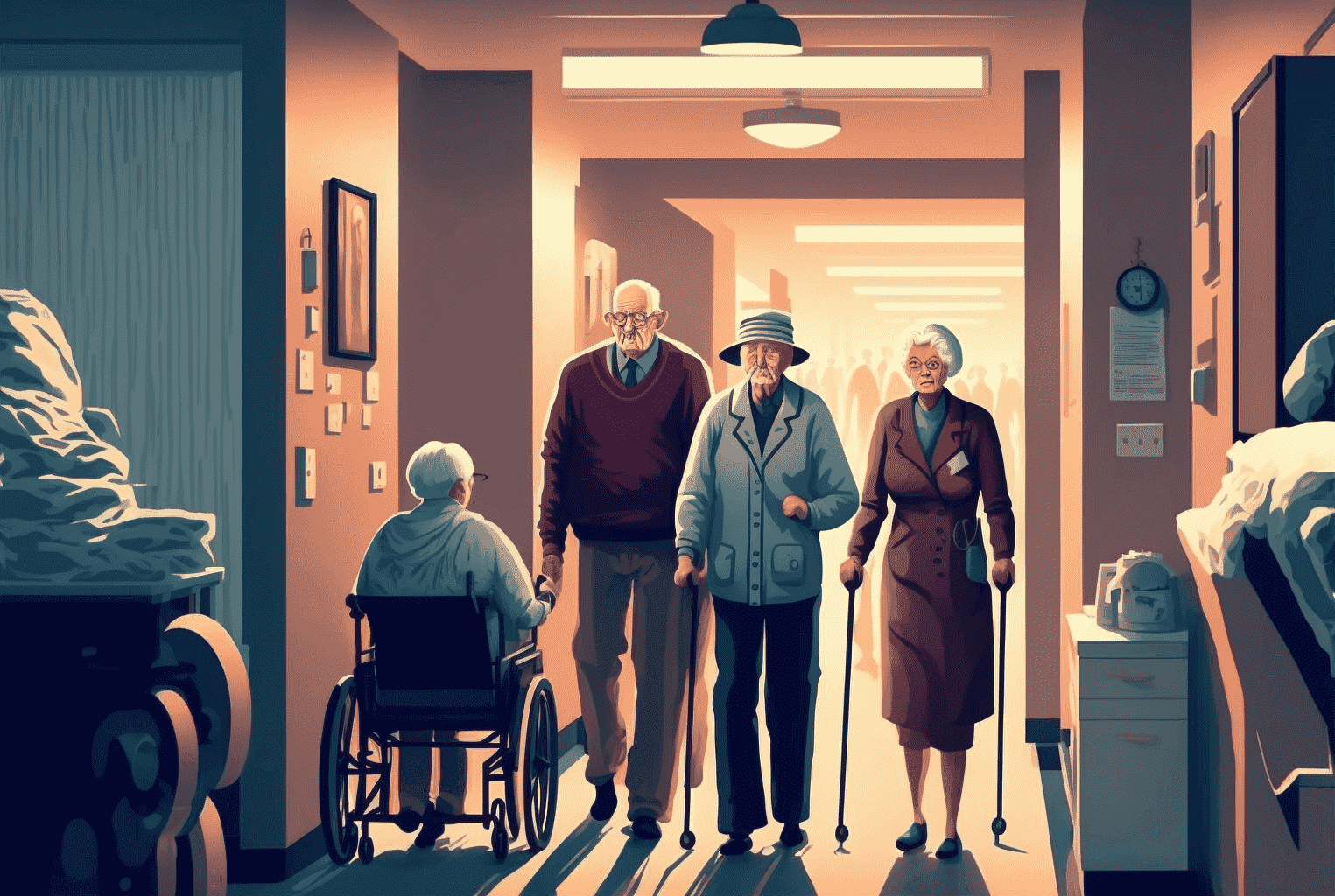Increased Life Expectancy: A Burden on the Healthcare System?

The world's aging population continues to grow, and it sounds fantastic that people are living for longer. However, the boom in the elderly population will affect the healthcare system. The question that a lot of people, especially in this industry, is whether our healthcare system is ready. According to the World Health Organization, the number of people aged 65 and older will reach a projected 1.5 billion by 2050. The WHO attributes this global health trend to a shift in the major causes of death today.
Non-infectious, chronic diseases that are heavily lifestyle based have been observed to be the major causes of death compared to infectious diseases. The fact that major causes of death can be prevented nowadays with a healthy lifestyle has proven to be a formula for having a longer life. These diseases include arthritis, diabetes, hypertension, obesity, heart disease, stroke, dementia, and high cholesterol.
Various health conditions are expected to challenge the healthcare system with the influx of older adults. These conditions include cancer, dementia, fall injuries, obesity, and diabetes.
Cancer
Due to an increase in the elderly population, cancer cases are expected to rise. The healthcare system needs to account for this in terms of allocating resources for oncology research among the elderly. It will also require a greater capacity of doctors, nurses, and healthcare professionals ready to care for this population in particular. Dealing with cancer patients and their treatments requires facilities and niche doctors to help the patient as much as possible. The healthcare system must be prepared for the influx to ensure that the patients are well cared for.
Dementia
Mental deterioration is more common among the elderly. An increase in the elderly population would also mean an increase in patients with dementia and Alzheimer's. People suffering from such diseases require special healthcare staff to care for their needs. Such areas of non-medical healthcare-based careers like home caregivers, hospice staff, and such will be required more with the increase of mentally challenged patients.
Fall Injuries
Falls among the elderly are one of the major causes of injury. These fall injuries can range from minor to severe. Replacements of body parts such as hips and knees will increase with the elderly population. Also, measures to help prevent and reduce the likelihood of serious falls will be required as well as improved technology in creating artificial body parts.
Obesity
The older people get, the less energy they have to expend, which leads to a slowed-down pace for doing things throughout the day. If you are sedentary at an elderly age, weight gain is quicker as the metabolism is considerably slower. Also, some injuries may render them immobile or greatly restrict physical activity leading to issues with weight, such as obesity. Obesity is an increasing societal problem, and the elderly are not exempt.
Diabetes
This chronic disease is on the rise, especially among the elderly. This means an increase in the elderly population increases diabetes in the community. It is a very serious condition that can lead to other subsequent diseases and complications, such as blindness or amputation of a limb. Diabetes can also be easily monitored and managed by trained healthcare professionals. The capacity of these professionals will have to be considered if the elderly are to be cared for well.

The healthcare issues mentioned above will bring a new face of challenges to the healthcare system, and they should plan and prepare accordingly. The need for resources will increase from staff to medical supplies, equipment, and medicine. Also, resources for researching and developing medicines and tools that will help combat these issues more effectively will be required. The system must create avenues to allow for this growth so that capacity will not be an issue.
A shortage of healthcare professionals is expected. The healthcare system must plan how to compensate for the increase in elderly patients. This can be done in several ways, from having many scholarships for nursing and doctors to having a legal system supporting hospitals and their staff. A lack of diversity in the caregiver population has been noted, and giving access to more people enrolling in healthcare professionals will kill two birds with one stone.
The change in family structures in this modern age will mean fewer family members will be available to be caregivers. This means the burden will fall on society and the government to help care for its elderly. Homes for the elderly, hospice, and professional home caregivers will be a part of the healthcare system the government and society will need to invest heavily.
The government and federal law will require sustainable, well-structured programs that can cater to the particular needs and grievances of the elderly population. The healthcare system must prepare for the increase in chronic illnesses and conditions, particularly for the elderly. Focusing on a single disease or issue among the elderly will result in insufficient support for the larger community. Instead, the system must focus on implementing a multidisciplinary approach to ensure patients receive the best case management.
Every birthday people wish you more life and health, which is beautiful. However, living longer doesn't guarantee a quality life. We must strive to live long and healthy lives to enjoy life's spoils. Part of fulfilling this dream depends on the healthcare systems we can access and afford. The government and healthcare-based organizations need to work in tandem to create policies, contingencies, and systems that will serve the growing elderly population. The fact that life expectancy is increasing is positive, so we must handle this positive growth to avoid a backward trend due to poor preparations.
Conclusion
Time waits for no man, and the older we get, the more we realize that simple things such as good health are not guaranteed but are fleeting. Knowing your healthcare system will be able to support you through your golden years will only increase the quality of life and, hopefully, quantity; we can only ask for so much.
